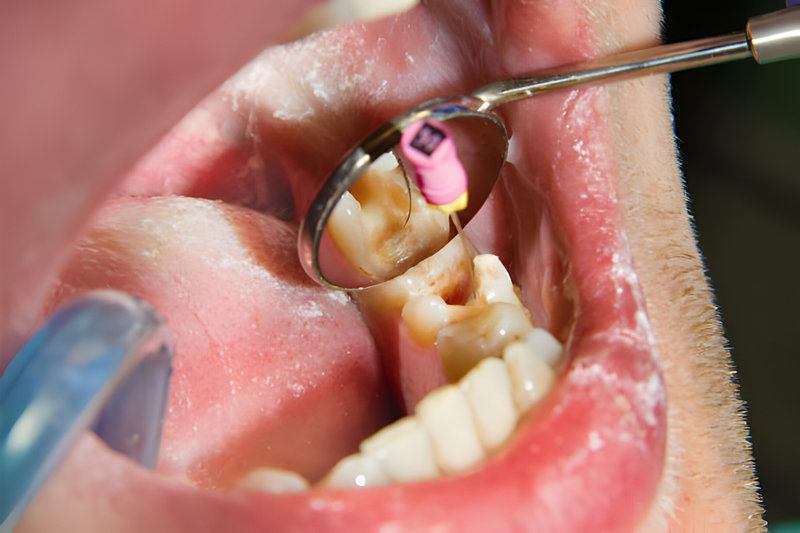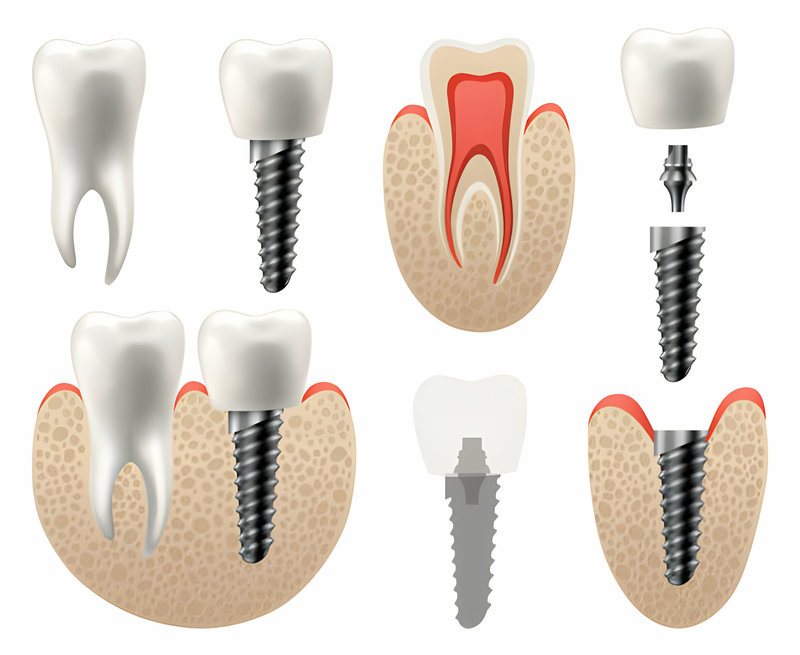
Timespan of a Root Canal Treatment in Whiteville, NC
Summary:
When undergoing root canal therapy or RCT, most individuals have similar questions, such as, ‘How long will it last?’
If you are wondering what is a root canal and how long it lasts, you are at the right place. Stats suggest that roots fixed by Root Canal Therapy have an 85% chance of lasting a lifetime!

When a tooth’s pulp gets inflamed or infected, root canal treatment RCT in teeth may be able to save it from extraction. An endodontist can salvage your natural tooth by extracting the pulp and cleaning, shaping, and disinfecting the root canals, potentially keeping it for years, decades, or even a lifetime.
In this article below, we will learn about the following things:
- What is Root Canal Treatment?
- Root Canal Therapy – Stages to the Procedure
- Factors That Decrease the Lifespan of Root Canal Treatment
Continue reading as we learn more about the RCT procedures in the following sections.
What is Root Canal Treatment?
Suppose your cavity is like a little house. Inside, there’s this soft stuff called pulp, with nerves, blood vessels, and all that. RCT occurs when this pulp gets infected or hurt because of deep cavities or cracks in the enamel. It’s like fixing up the inside of the tooth so it can stay in place and not cause you any more trouble.
You no longer have to be ashamed of your crooked cavity; you can quickly get root canal therapy in NC done without hesitation.
Success Rate of Root Canal Treatment
How well does it work? Well, most of the time, it’s pretty successful. One of the most extensive studies examined the long-term efficacy of 487,476 RCTs. According to the survey, 98% of root canals last one year, 92% last five years, and 86% last ten years or more. Endodontically treated molars had a much greater 10-year survival rate than general dentist-treated molars.

But it can depend on a few things, like how complicated your case is, how skilled your dentist or endodontist in Whiteville, NC, is, and how healthy the rest of your mouth is.
Root Canal Therapy – Stages to the Procedure
Let’s explain what happens when you go in for a root canal.
Stage 1- Diagnosis and Exam:
Your trip begins with your dentist taking X-rays to acquire a better understanding of what’s going on beneath the surface. They will check the problematic tooth for infection, decay, or injury symptoms.
Stage 2- Anesthesia: Numbing the Area.
Your dentist will carefully use a local anesthetic to ensure the area around the damaged cavity is painless. It provides a comfortable experience during the treatment.
Stage 3- Access Opening: Getting Inside the Tooth
Our dentist in Whiteville, NC, develops a small access port in the tooth to access the pulp chamber for root canals. This process allows our dentist to contact the inner enamel, similar to accessing your teeth beyond the outer hard shell.
Stage 4- Pulp Removal: Say Goodbye to Infected Tissues
This is the stage where you generally bid goodbye to the excruciating pain. Dentists use specialized equipment to extract it from the root canals, leaving a clean slate for the following processes.
Stage 5- Filling the Canals and Sealing the Deal:
A biocompatible substance, like gutta-percha, seals the cleansed root canals to avoid future problems. It’s like putting up a protective barrier.
Factors That Decrease the Lifespan of Root Canal Treatment
Now, here’s the thing – while RCT usually works out fine, there are a few things that could make it not last as long as it should:
Incomplete Treatment:
Incomplete RCT leaves diseased tissue, which allows germs to grow and spread. This can result in reinfection or the development of new infections, putting the procedure’s success at risk. Furthermore, untreated regions can develop irritation and pain, necessitating further treatments or tooth extraction.
Incomplete therapy fails to address the underlying source of the dental problem, exposing the cavity to the issues and shortening the overall life of the root canal teeth treatment.
Not Taking Care of Your Teeth:
Neglecting oral hygiene, such as not brushing and flossing, can result in plaque accumulation and gum disease. This can jeopardize the treated tooth’s health and surrounding tissues, increasing the likelihood of reinfection or complications following RCT. Bacteria from untreated plaque can infiltrate the tooth roots, reducing the procedure’s efficacy and perhaps causing more harm.

Cracks in the Tooth:
It can allow germs to re-enter the tooth, causing reinfection. Even when the pulp is removed and it is capped, fractures can let germs get deeper into the cavity, resulting in recurring infections.
Furthermore, fissures might weaken the enamel’s structure, making it more prone to fracture or dislodgement. This jeopardizes the integrity of the RCT and raises the possibility of failure or the necessity for subsequent dental treatments.
Gum Disease:
It may jeopardize the stability of the impacted tooth. As gum disease worsens, it can cause inflammation and damage to the tooth’s supporting components, including the gums and bone.
Even with successful root canal therapy, this might result in greater mobility and tooth loss. Furthermore, untreated gum disease can lead to chronic infection and inflammation in the surrounding tissues, raising the risk of reinfection and procedure failure.
Problems with Nearby Teeth:
If the teeth next to the one that got the procedure have issues, it could affect how well it holds up. Additionally, fillings or poorly fitted or inadequately placed crowns might disrupt the seal after RCT.
If the restoration does not fit tightly or is not adequately sealed, germs may enter the treated tooth, resulting in reinfection and procedure failure. Furthermore, insufficient dental work may fail to offer proper protection and support for the cavity, increasing the risk of fracture or injury.
Time of Treatment:
Timely therapy has better benefits than delayed treatment. Complications are more likely when a tooth’s health deteriorates before it is treated, particularly if the root canal infection extends to the jaw.
Location of Tooth:
Endodontic therapy for a front tooth is more straightforward since it only requires one root canal. Furthermore, because these teeth are employed for biting and cutting rather than grinding, they experience less force and stress. Because the rear teeth have two or three roots, they are more challenging to treat and need greater bite power while eating. This makes them more susceptible to complications caused by fractured restorations.
Patient’s Age:
Our teeth become increasingly fragile and prone to breaking as we age. It is another factor that influences how long a root canal will last. When it comes to rebuilding molars, dental crowns are typically favored over dental fillings since they safeguard the teeth from stress.
Takeaway
- Root canal therapy is a standard procedure for preserving diseased or damaged teeth. It has a high success rate, although various circumstances determine it.
- Incomplete treatment, poor rooted dental care, cavity splits, and gum disease can all shorten the life of a root canal.
- Regular dental check-ups and proper oral hygiene practices are critical for extending the life of root canal therapy and improving overall oral health.
- Don’t let the complexity of the operation confuse you; connect with our Carolina Coast Family Dental professionals to learn more!
